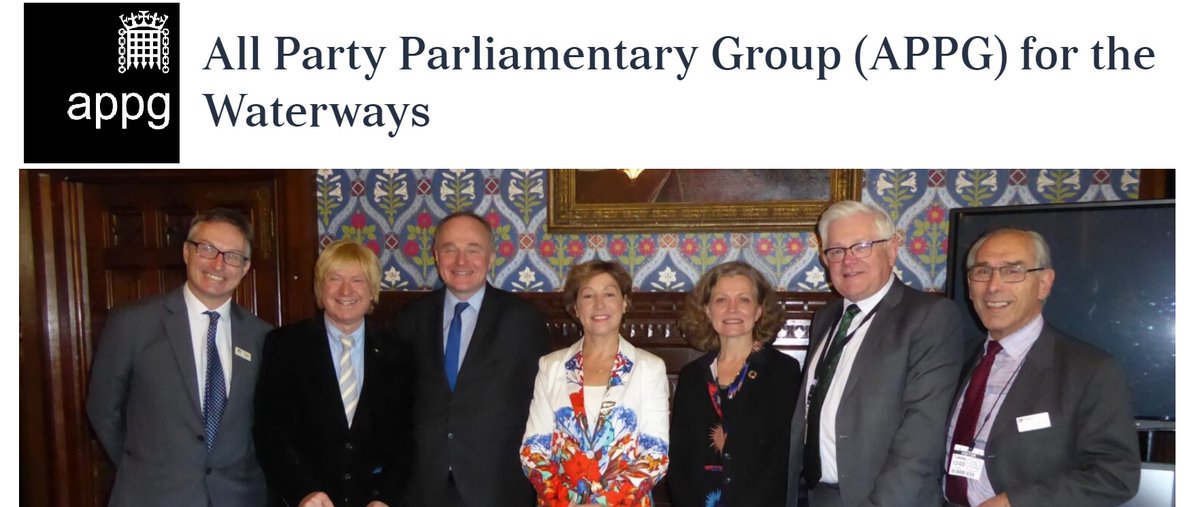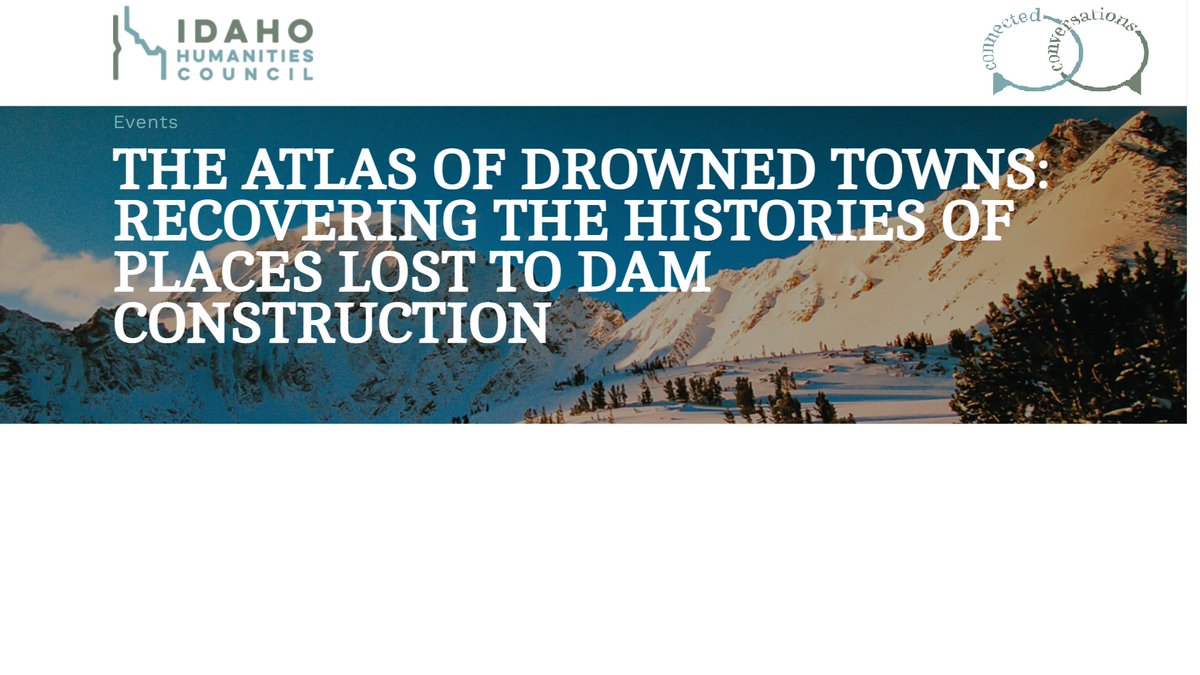
Looking forward to what should be an interesting discussion on the history & architecture of our waterways #APPGWaterways 

First, @Mike_Fabricant and @sueohare give an overview of the work of the APPG and the IWA #APPGWaterways
First speaker Liz Ivor discusses the physical remains of our industrial waterways and their role in our future landscapes #APPGWaterways
Ivor notes that our use and manipulation of water goes back to settlements in pre-history. Water has been used for food, farming, communications and trade #APPGWater
Moving on to the modern period, Ivor moves on to the "golden age of waterways", with the engineering feats of the canal networks, originally built in the 1700s, still having an impact on our landscapes and communities #APPGWaterways
Ivor also explains that canals were often quite stark and industrial. The view of canals as being places of biodiversity and nature is an accidental one, as canals were often "behind communities" and so natural growth has come more from neglect than by design #APPGWaterways
Nowadays, McIvor notes than our canals are being repurposed - they are now places for people to socialise and take in the natural surroundings. McIvor notes that this is often done in a way that showcases industrial heritage, rather than hide it #APPGWaterways
McIvor discusses the benefits of canals to modern-day local economies - both in terms of inward investment, tourism spend and the creation of jobs #APPGWaterways
McIvor argues that it is down to volunteer power & policymakers to help preserve our industrial heritage in the waterways. Says that this will provide economic regeneration, help tackle climate change, improve wellbeing & provide upskilling opportunities #APPGWaterways
Next speaker Dr @Jo_Bell discusses the psychogeography of canals and waterways and how this contributes to our natural culture #APPGWaterways
Bell describes the UK's canal network is "our version of the Great Wall of China" in terms of cultural impact. While canals were originally designed "to link sellers to buyers", Bell argues they now have a deeper cultural significance to our public life #APPGWaterways
Bell says that canals also represent under-reported histories - especially those who worked on the canals, who were often illiterate and so unable to share their histories by writing them down #APPGWaterways
In particular, Bell discusses the work she has done to raise awareness of the social history of people on the working boats. She describes them as the "moving parts" of our canal network #APPGWaterways
Bell argues that the nomadic existence of these people has led to them having unique and distinct culture - particularly in areas such as ropework and artwork of "roses & castles". Says this culture is "more ephemeral than industrial heritage" and needs protecting #APPGWaterways
Bell says that #PeakyBlinders has helped raise awareness of some of this historic culture, but more needs to be done to preserve and document both historical and modern-day boat culture #APPGWaterways
Bell also advises that London is a "bubble" in terms of boat culture - with the majority of boat dwellers in the Capital being "people who would rather live in a house". Outside London, boat people are "more working class, more male and mostly white" #APPGWaterways
Post-#Coronavirus, Bell predicts that the boat-dwelling community will grow due to technology making WFH easier and the Cost Of Living meaning people may not be able to afford to rent or buy houses #APPGWaterways
Final speaker @hughpearman gives a discussion on "Old Waterways, New Buildings" and how new developments can be built in ways that are respectful to our waterway heritage #APPGWaterways
Pearman says that there is often a tension with new developments wanting to be at the front of canals, which would alter or destroy the heritage of our waterways and resistance from locals wanting to preserve these spaces #APPGWaterways
Using New Islington in #Manchester and Port Loop in #Birmingham as a "good" examples, Pearman shows how sympathetic design can incorporate industrial heritage & waterways into the design of new builds, making them more accessible to the wider community #APPGWaterways
Pearman turns to the challenges of "super scale" developments in London. Pearman notes that the lack of knowledge of heritage and boating culture often means that waterways are incorporated in ways that limit public utility #APPGWaterways
Pearman concludes by saying that there is potential to properly incorporate waterways and its heritage into new designs, but greater care and consideration is needed #APPGWaterways
The webinar now moves on to a Q&A session #APPGWaterways
On a Q on how to maintain "uniqueness" of heritage in modern developments McIvor notes its easier to maintain "natural" building materials (such as brick & stone) in wet environments compared to glass & steel. This should make it easier for sympathetic developments #APPGWaterways
McIvor agues industrial archeologists should be involved "more and earlier" in developments on waterways. Bell argues for historical training for all people working in these areas #APPGWaterways
Pearman notes the importance of establishing Local Plans for regeneration and housebuilding. Says that this would help develop a long-term strategy and prevent unsympathetic developments from going ahead #APPGWaterways
Fabricant notes that many local authorities have struggled to pass local plans, but notes that the West Midlands #MetroMayor has committed to increase funding for the region's industrial heritage #APPGWaterways
When asked how to promote the role of 🐴s in boating heritage, Bell calls for stronger cultural interventions - such as poems, apps & immersive tech to make this intangible history more accessible #APPGWaterways
Very interesting conversation on how we can preserve the natural & industrial heritage of our waterways. Thanks to Liz McIvor, @Jo_Bell & @hughpearman for your presentations & to the APPG for hosting! #APPGWaterways
@threadreaderapp Unroll please
• • •
Missing some Tweet in this thread? You can try to
force a refresh





